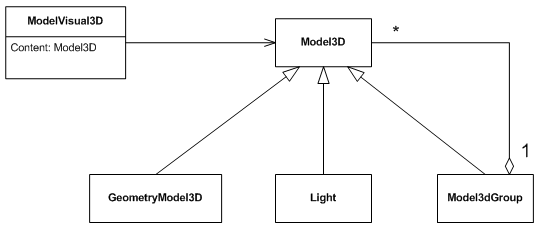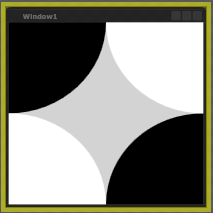Custom Meshes
As I already mentioned, typing mesh positions by hand is not scalable, even for the simplest things like a cube. Meshes must be generated either by a tool or by […]
As I already mentioned, typing mesh positions by hand is not scalable, even for the simplest things like a cube. Meshes must be generated either by a tool or by […]

These are three main components of a WPF 3D scene. In fact, it should be more like “Lights, Camera, GeometryModel3D”, but “GeometryModel3D” looks ugly and messes up the rhythm of […]
Continuing to explore WPF, I wandered into the world of 3D. I decided to start small: let’s display a rotating cube. I built a little sample that is available here […]
WPF uses “pack” URI schema to point to resources. An absolute pack URI looks like this: pack://application:,,,/ResourceFile.xaml The schema is described in this MSDN article and they claim the URIs […]

Setting window background in Expression Blend proved to be quite confusing. Of course, seasoned users would say it is beyond obvious and I am just an ignorant novice. This may […]
Expression blend looks like an interior of a coffin. It is outright depressing. “Expression light” theme is better – it looks like an interior of a coffin on a bright […]
As many people have pointed out, WPF in its current form is far from point-and-click experience. This is how you set background image on a windows form (not WPF): Select […]
Creating an elliptical button proved to be not as easy as some claimed. I would hardly describe it is “a snap”. <Button Shape=”Ellipse”/> would be a snap, but the reality […]
Yes, I know, WPF is old news and it had been released almost three years ago – it is a well petrified stone axe for most cutting edge developers. I […]
We had an interesting encounter when flying US Airways from San-Diego to Philadelphia a couple of days ago. This was a red-eye overnight flight. A young woman with a little […]